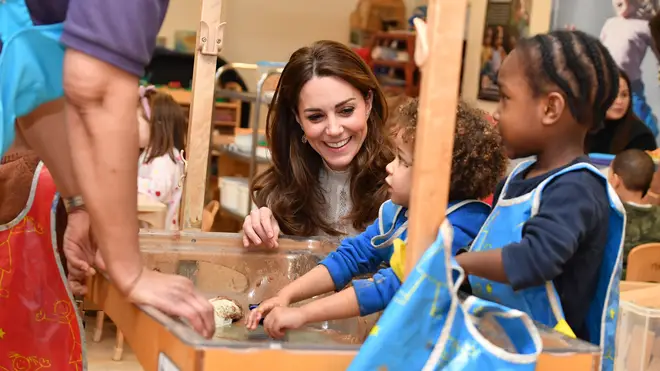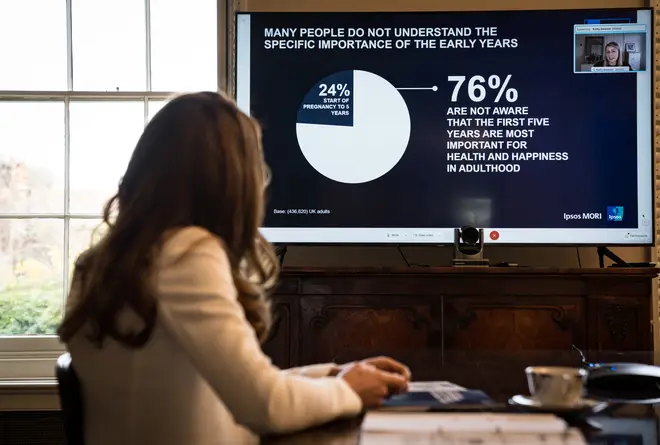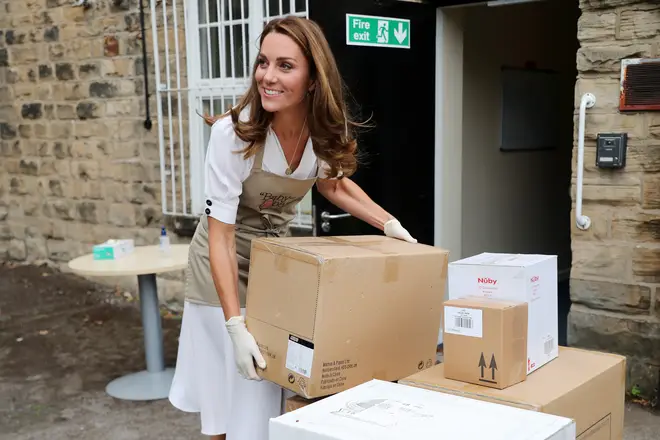
James O'Brien 10am - 1pm
27 November 2020, 00:40 | Updated: 27 November 2020, 06:05

Parental loneliness has "rocketed" during the coronavirus pandemic, a shocking study led by the Duchess of Cambridge has found.
The number of parents of children aged five and under experiencing loneliness "increased dramatically" from 38% before the first nationwide lockdown to 63%.
A report into early years parenting, commissioned by the Royal Foundation of The Duke and Duchess of Cambridge, discovered parents in the most deprived areas of the UK were more than twice as likely to say they feel lonely "often or always" (13%) as those in the least deprived parts of the country (5%).
Carried out by Ipsos MORI, the research also suggests that parents are now twice as likely to feel uncomfortable asking for help.
Read more: UK travel arrivals down 82 per cent due to covid travel rules
Over a third of parents said they felt uncomfortable seeking help and support for how they were feeling, compared with 18% who said the same before the outbreak.
Researchers surveyed almost 4,000 adults between December 2019 and January 2020, and 1,000 parents of children aged 0-5 online in October, to identify the impacts of the pandemic.
They found that 63% of parents said they are spending more quality time with their child and a majority said this is likely to continue.

But parents who have struggled with finances during the outbreak or those who do not live with a partner were more likely to say they had spent less quality time with their child.
Around one in 10 parents believe the pandemic will have a negative impact on the brain development of their child, while 44% believe it will be better due to increased time learning, playing and talking with their child.
Jason Knauf, chief executive of the Royal Foundation, said: "Parents report that they rely most often on the backing of their family and friends, yet the global pandemic has forced us into silos of isolation.
Read more: Ruby Wax: Impending mental health crisis will be the ‘next pandemic’
"Parental loneliness has rocketed from 38% to 63% and the percentage of those who feel uncomfortable asking for help has doubled.
"Most concerningly, this impact has been greatest on those living the hardest lives, with responses from those in deprived areas consistently showing higher levels of loneliness and less likely to have experienced an increase in community support."
The findings also show that 70% of parents felt judged by others, and almost half (48%) said this had taken an emotional toll.
This included feeling judged based on how their child behaves, how they manage their child's behaviour, and for being too lenient.

As a result, some 17% reported a fall in self-esteem or increase in self-doubt, 13% reported feeling inadequate or like a failure, and 10% reported feeling sad or unhappy.
And 15% of parents said the fear of feeling judged makes it difficult to ask for help and support for their child if needed.
The report calls for society to give parents "encouragement in place of critique", and said there is a need for more support networks to protect parents' mental health.
Elizabeth Duff, senior policy adviser at the NCT, the UK's leading charity for parents, said: "It can be difficult to adjust to the huge life changes a baby brings and being a new parent may feel like a lonely time.
"This has been exacerbated by the pandemic, bringing fear of infection and restrictions on normal social interaction.
"It's so important that new mums and dads look after themselves as well as their baby and do things that make them feel less isolated. Even getting out for a walk to the local park can help.
"Having a local support network of other parents can give a massive boost to mental wellbeing.
"We've launched Walk and Talk groups, a chance for mothers and fathers to meet and chat during a socially distanced walk, and they're proving to be very popular."